Being There
Comprehensive Storyform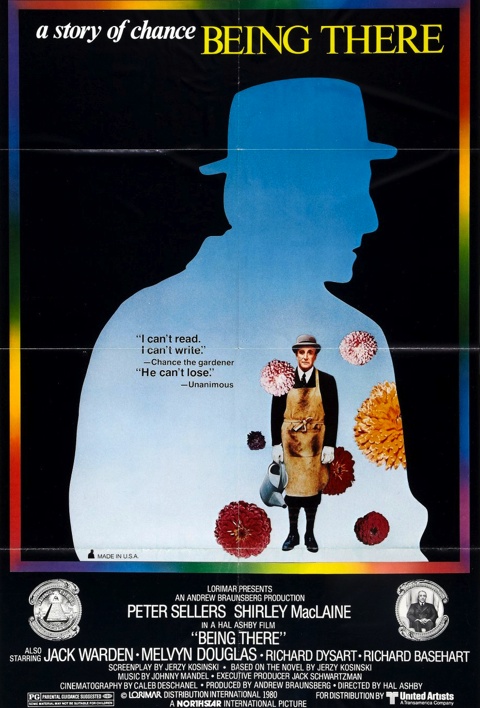
The following analysis reveals a comprehensive look at the Storyform for Being There. Unlike most of the analysis found here—which simply lists the unique individual story appreciations—this in-depth study details the actual encoding for each structural item. This also means it has been incorporated into the Dramatica Story Expert application itself as an easily referenced contextual example.
Story Dynamics
8 of the 12 essential questions
- Steadfast
- Main Character Resolve
Chance remains steadfast in his desire to live in a home where he can work in a garden and watch television.
- Stop
- Main Character Growth
Chance must hold on until he finds a permanent living arrangement.
- Be-er
- Main Character Approach
Chance accepts any situation he finds himself in; he adapts himself to the environment:
“Chance did what he was told” (Kosinski, 1970, p. 7).
- Male
- Main Character Mental Sex
Chance uses the male problem solving technique of cause and effect. For example, when faced with threatening gang members, he attempts to turn them off with a television remote control.
- Action
- Story Driver
When the Old Man dies, Chance is forced out of the only home he has ever known. Once on the outside, he is hit by a limousine, resulting in its owner, Eve Rand, taking responsibility for Chance’s recovery and well-being; and so forth.
- Optionlock
- Story Limit
There are only a limited number of sources the doctor can fully investigate to find out Chance’s background before he comes to the realization that Chance truly is who he claims to be, a simple gardener.
- Success
- Story Outcome
Benjamin Rand is at peace when he dies, knowing Chance and Eve will be together and his associates will put Chance in the White House; Dr. Allenby is satisfied that Chance loves his dear friend, Eve; men of influence are satisfied that Chance, the man who has no past, will make a good candidate for President of the United States.
- Good
- Story Judgment
Chance is no longer homeless. He has grown to love Eve, who will provide him with a home, gardens, and a television in every room:
“A breeze fell upon the foliage and nestled under the cover of its moist leaves. Not a thought lifted itself from Chance’s brain. Peace filled his chest” (Kosinski, 1970, p. 118).
Overall Story Throughline
"Gardens and Television Sets"
- Psychology
- Overall Story Throughline
All the objective characters make their own (erroneous) interpretation of actuality; Chance thinks electronically generated images (TV) are real; with few exceptions, all that come in contact with Chance attribute greater meaning to his pronouncements than they actually warrant:
“I have seen ashes and I have seen powders,” said Chance. “I know that both are bad for growth in the garden.” “Hear, hear!” the woman sitting on Chance’s right cried out…“Mr. Gardiner has the uncanny ability of reducing complex matters to the simplest of human terms.” (Kosinski, 1970, p. 88)
- Conceptualizing
- Overall Story Concern
All the objective characters are concerned with who Chance is and how he fits into the scheme of things.
- Situation
- Overall Story Issue
The state of affairs in the nation are problematic/unstable; Benjamin Rand’s position as the First American Financial Corporation’s chairman of the board makes him an important advisor to the President; Chance’s living situation at the Old Man’s is disrupted by his death, forcing Chance out into the world and in search of a garden; Ben’s illness requires his doctor live in, making it convenient for Eve to take Chance to her home instead of a hospital for medical attention; Eve’s social status requires an escort to certain functions, as Chance fulfills that role, they become closer.
- Circumstances
- Overall Story Counterpoint
- Overall Story Thematic Conflict
Situation vs.Circumstances - Chaos
- Overall Story Problem
The Old Man’s death puts Chance’s life into chaos; Ben is dying of a aplastic anemia (a young person’s disease); the country is in a state of economic chaos:
“...these are the facts: unemployment is approaching catastrophic proportions, unprecedented in this country; the market continues to fall toward 1929 levels; some of the largest and finest companies in our country have collapsed” (Kosinski, 1970, pp. 88-89).
- Order
- Overall Story Solution
Remaining with the Rands solves Chance’s problem of finding a home; Ben puts his life in order as his death draws near; men of influence methodically go through a list of potential candidates for President and determine Chance is their best choice.
- Perception
- Overall Story Symptom
Everyone has their own perception of Chance; Chance perceives life as television; Louise perceives it’s a white man’s world; the American public perceives Chance’s words as metaphors for the social and economic situation.
- Actuality
- Overall Story Response
The objective characters are directed toward finding out who Chance actually is; the President is concerned about his standing with the American public.
- Circumstances
- Overall Story Catalyst
The Rands’ fondness for Chance serves to promote him into political and social prominence.
- Falsehood
- Overall Story Inhibitor
The Rands’ fondness for Chance serves to promote him into political and social prominence.
- Becoming
- Overall Story Benchmark
The more Chance becomes entrenched in the Washington D.C. political and social scene, the more he becomes accepted as a powerful political figure; Eve’s uptight nature becomes transformed after her sexual experience with Chance.
- Overall Story Throughline Synopsis
Benjamin Rand is a powerful man who has the skills and abilities to manipulate presidents and stock markets. Unfortunately for him, he is dying and doesn’t have a suitable heir to his millions. An unknown man by the name of Chance happens into the Rands’ life, forever changing the world of U.S. politics and high finance. Chance’s simple expressions and responses to those around him are interpreted as great revelations, when they truly represent each listener’s own desires and search for understanding.
Additional Overall Story Information →
Main Character Throughline
Chance — Gardener for the Old Man, friend to the Rands
- Mind
- Main Character Throughline
Chance has a fixed state of mind; he relates everything to a garden or what he has seen on television.
- Memory
- Main Character Concern
When Chance is concerned about something (which is not often), it is usually addressed by a recollection of some sort—typically in reference to gardening, his strongest memories. He expresses these concerns via gardening tips throughout the story. When Chance recollects his first visit with the Old Man, it is established what he was to do with his life:
The words that the Old Man had spoken to him the first time had wormed their way into his memory like firm roots…Chance was to work in the garden, where he would care for plants and grasses and trees which grew there peacefully. He would be as one of them: quiet, openhearted in the sunshine and heavy when it rained. (Kosinski, 1970, pp. 6-7)
- Truth
- Main Character Issue
Chance always tells the truth. It is this very ingenuousness that catches others off-guard, especially in a society where certain falsehoods (white lies, instances of tactfulness) are accepted.
- Falsehood
- Main Character Counterpoint
- Main Character Thematic Conflict
Truth vs.Falsehood - Thought
- Main Character Problem
Because he is retarded, Chance’s thought process is impaired.
- Knowledge
- Main Character Solution
Once Chance learns that Eve will not close up her home after Benjamin dies, he begins to feel that he is safe (although Chance will probably always remain a stranger to long-lasting knowledge, and the future will continue to be beyond his knowledge):
The thought that he might have to leave did not upset him; he knew that eventually he would have to go but that, as on TV, what would follow next was hidden; he knew the actors on the new program were unknown. He did not have to be afraid, for everything that happened had its sequel, and the best that he could do was to wait patiently for his own forthcoming appearance. (Kosinski, 1970, p. 32)
- Perception
- Main Character Symptom
Chance focuses his attention on television, and from this gets a skewed view of reality. Additionally, his focus on how things appear to be is sometimes troublesome for others, especially when Chance seems to be so comfortable with the many misconceptions made about his language skills, his political skills, his background, and so forth.
- Actuality
- Main Character Response
Chance tries to “make real” what he has seen on television, and is often surprised at the differences real life has to offer him. He comments to the President that the President looks much taller on the television (referring to the TV image/real life size difference). Anytime he can, Chance will use what he has seen on television as a means of evaluating actuality:
Chance picked up the paper. He held it in both hands and stared at it. He tried to calculate the time needed to read a page. On TV the time it took people to read legal papers varied. Chance knew that he should not reveal that he could not read or write. On TV programs people who did not know how to read or write were often mocked and ridiculed. (Kosinski, 1970, pp. 19-29)
- Suspicion
- Main Character Unique Ability
Although Chance is clearly above being suspicious of anyone/anything, his unknown past makes him a target of immense suspicion. Suspicions about his past that are laid to rest makes way for a happy future with Eve, a future for the Rand dynasty, and a potential nurturing leader of the United States.
- Sense of Self
- Main Character Critical Flaw
Chance has no sense-of-self:
By changing the channel he could change himself. He could go through phases, as garden plants went through phases, but he could change as rapidly as he wished by twisting the dial backward and forward. In some cases he could spread out into the screen without stopping, just as on TV people spread out into the screen. By turning the dial, Chance could bring others inside his eyelids. Thus he came to believe that it was he, Chance, and no one else, who made himself be. (Kosinski, 1970, p. 5)
- Subconscious
- Main Character Benchmark
Chance has the basic desire for food, shelter, and the feeling of self-worth he receives from taking care of a garden. The more secure he is in the Rands’ home, the more these basic drives are fulfilled.
- Main Character Description
His name was Chance because he had been born by chance. He had no family. Although his mother had been very pretty, her mind had been as damaged as his, the soft soil of his brain, the ground from which all his thoughts shot up, had been ruined forever. (Kosinski, 1970, p.7)
- Main Character Throughline Synopsis
Chance is a slightly retarded adult who has grown up without much contact with the outside world. His one true skill is as a gardener. His one great passion is watching television.
Additional Main Character Information →
Influence Character Throughline
Dr. Allenby — Doctor
- Universe
- Influence Character Throughline
As Benjamin Rand’s primary caregiver, Dr. Allenby is temporarily situated in the Rand household, therefore on hand to treat Chance’s injuries.
- Past
- Influence Character Concern
Dr. Allenby is concerned with who Chance is and where he has come from, and most importantly, how he will impact Ben and Eve.
- Fate
- Influence Character Issue
Dr. Allenby must determine that the fate that brought Chance to the Rand household will result in Chance’s ultimate destiny as Eve’s husband and President of the United States.
- Destiny
- Influence Character Counterpoint
- Influence Character Thematic Conflict
Fate vs.Destiny - Chaos
- Influence Character Problem
Dr. Allenby cannot understand Chance’s strange antics.
- Order
- Influence Character Solution
Dr. Allenby is satisfied that Chance is who he says he is, a gardener, and he will make Eve and Ben happy.
- Thought
- Influence Character Symptom
Dr. Allenby does not know what to think about Chance’s odd behavior, but he is intrigued enough to investigate his background. If he discovers Chance is a retarded gardener, he can expose him to the Rands, which may result in Chance being homeless once more.
- Knowledge
- Influence Character Response
Once Dr. Allenby is certain that Chance is a gardener, and will cause no harm to Eve or anyone else, he is willing to step aside.
- Interdiction
- Influence Character Unique Ability
As Ben’s physician, Dr. Allenby can intercede on his behalf and nullify Chance’s effect on the Rands.
- Conditioning
- Influence Character Critical Flaw
After the Rands make clear their fondness for Chauncey Gardiner, Dr. Allenby, conditioned to look after their best interests, keeps the information of Chance’s true identity to himself.
- Future
- Influence Character Benchmark
As Dr. Allenby determines that Chance will impact the Rands’ future, he becomes more concerned with finding out about Chance’s past.
- Influence Character Description
Rands’ close friend and personal physician
- Influence Character Throughline Synopsis
Dr. Allenby is a friend of the Rands and acts as Ben’s personal physician. His primary concern is to see to Ben’s welfare and medical needs.
More Influence Character Information →
Relationship Story Throughline
"The Doctor Investigates the Gardener"
- Physics
- Relationship Story Throughline
Dr. Allenby investigates Chance’s past to discover his true identity.
- Understanding
- Relationship Story Concern
Dr. Allenby wants to understand who “Chauncey Gardiner” really is and how he may impact the Rands.
- Senses
- Relationship Story Issue
Dr. Allenby observes Chance’s strange behavior, and interprets it (correctly) as retardation.
- Interpretation
- Relationship Story Counterpoint
- Relationship Story Thematic Conflict
Senses vs.Interpretation - Self-Aware
- Relationship Story Problem
Chance is not self-aware. His childlike innocence and quirky behavior, combined with his ability to influence the Rands, causes Dr. Allenby to investigate the man.
- Aware
- Relationship Story Solution
Once Dr. Allenby is aware that Chauncey Gardiner is Chance the gardener, and that he only has good intentions towards the Rands, he accepts him.
- Perception
- Relationship Story Symptom
Dr. Allenby perceives Chance as a possible threat to the Rands.
- Actuality
- Relationship Story Response
Dr. Allenby investigates who Chance actually is, to see if he is truly a threat to the Rands.
- Interpretation
- Relationship Story Catalyst
Dr. Allenby’s interpretation of Chance’s behavior and its impact on people, drives him to find out about Chance’s past.
- Destiny
- Relationship Story Inhibitor
Ben and Eve’s favorable comments about Chance, and their belief he was destined to become part of their family, makes it difficult for Dr. Allenby to cast doubt on him.
- Obtaining
- Relationship Story Benchmark
The more information Dr. Allenby obtains about Chance, the more he comes to believe in him.
- Relationship Story Throughline Synopsis
Chance comes into conflict with Dr. Allenby because of Chance’s effect on the Rands. Although Chance never presents himself as anything other than what he truly is, Dr. Allenby is certain that Chance has ulterior motives and sets about “outing” him.
Additional Relationship Story Information →
Additional Story Points
Key Structural Appreciations
- Conceptualizing
- Overall Story Goal
All the objective characters are concerned with how to realize the hope Chance’s observations about life give for their future and the welfare of the country.
- Understanding
- Overall Story Consequence
If people understood who Chance really is, a simple gardener, they would not put their confidence in him and the positive effect he engenders would not take place.
- Past
- Overall Story Cost
In an attempt to find strong leaders for the country, men of influence discount many potential candidates because of their past:
O’Flaherty spoke easily:
“What was the trouble with Duncan? With Frank and with Shellman, for that matter, and with so many of the others we’ve considered and have had to reject? The damn trouble was that they all had background, too much background! A man’s past cripples him: his background turns into a swamp and invites scrutiny.” (Kosinski, 1970, p.116)
- Memory
- Overall Story Dividend
If Ben’s associates follow through with his last wishes and support Chance for President, they will have honored his memory; long after he has died, Eve will savor happy memories of her marriage with Ben.
- Becoming
- Overall Story Requirements
Chance evolves from a gardener to a Presidential advisor; Eve becomes Chance’s lover; because of his confidence in Chance, Ben becomes comfortable with the reality of his death.
- Obtaining
- Overall Story Prerequisites
Chance must not have a past that would reflect negatively on a future position of power; Ben fulfills a prerequisite for putting his life in order by obtaining a romantic partner (Chance) for Eve.
- Future
- Overall Story Preconditions
There must be no discovery of Chance’s past in the future; Ben must determine what is necessary to ensure a happy future for Eve before he dies.
- Subconscious
- Overall Story Forewarnings
The President’s sexual impotence is representative of his impotence as leader of the country; and so forth.
Plot Progression
Dynamic Act Appreciations
Overall Story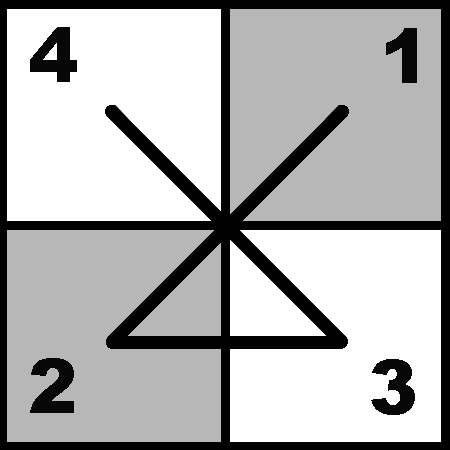
- Being
- Overall Story Signpost 1
Chance imitates people on TV, such as the livery driver in Gone With the Wind, and the President of the United States; Louise the maid is concerned that Chance will always be a child; Thomas Franklin and Miss Hayes are concerned with acting on the instruction of their law office to close up the Old Man’s house, even though it is evident they are putting a man out on the streets; the street gang Chance encounters is concerned with taking a tough stance; Eve is concerned with acting as a good Samaritan after Chance’s accident.
- Becoming
- Overall Story Signpost 2
Chance becomes part of the Rand household; Eve is concerned with becoming a widow; the President is concerned with becoming unpopular; Benjamin invites Chance to consider becoming part of “a program to assist American businesses that have been harassed by inflation, excessive taxation, riots, and other indecencies” (Kosinski, 1970, p. 35).
- Conceiving
- Overall Story Signpost 3
The financial editor of The Evening Post tries to conceive there is no background information on Chauncey Gardiner and insists his assistant continue her research; Thomas Franklin’s significant other has the idea he is having an affair with Miss Hayes; because of his illness, Benjamin comes up with the idea of asking Chance to escort Eve to an important dinner; after listening to the words of Chance, the President conceives of a way to reassure the public “that no drastic governmental measures were forthcoming, even though there had been another sudden decline in productivity” (Kosinski, 1970, p.47) by likening the state of economy to a garden.
- Conceptualizing
- Overall Story Signpost 4
Benjamin Rand’s pallbearers discuss putting Chance into the White House; the Soviet Ambassador envisions a friendship with Chance will help to keep peace between the U.S. and the Soviet Union; Ronald Stiegler of Eidolon Books develops a plan for Chance to author a book without ever having to actually write it:
I can’t write, said Chance. Stiegler smiled deprecatingly. Of course-but who can, nowadays? It’s no problem. We can provide you with our best editors and research assistants. I can’t even write a simple postcard to my children. So what? I can’t even read, said Chance. Of course not! Steigler exclaimed. Who has time? One glance at things, talks, listens, watches. (Kosinski, 1970, p.87)
Main Character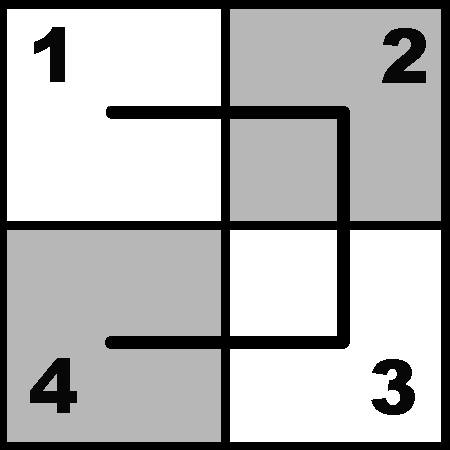
- Memory
- Main Character Signpost 1
Chance recalls he has lived in the Old Man’s house since childhood;
“I have always been the gardener here. I have worked in the garden in back of the house all my life. As long as I can remember” (Kosinski, 1970, p.14).
- Preconscious
- Main Character Signpost 2
Try as he might to adapt his current situation to what he has seen on television, Chance’s instinctive responses still come out;
“On television, Mr. President, you look much taller. I must warn you, that Chauncey’s not a man to bandy words. Oh, really. Well, Mr. Gardiner I’m a man that appreciates discussing a frank discussion” (Kosinski, 1979).
- Conscious
- Main Character Signpost 3
Chance spends minimal time contemplating what others request of him: Chance agrees to appear on television; he agrees to escort Eve to a party, he agree to go upstairs with a stranger.
- Subconscious
- Main Character Signpost 4
Eve fulfills her sexual desires with Chance, making possible her emotional growth.
Influence Character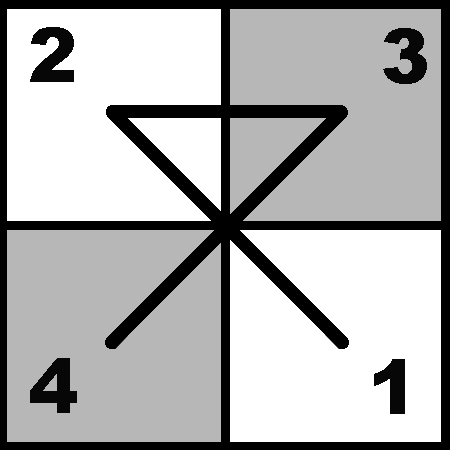
- Present
- Influence Character Signpost 1
Dr. Allenby is installed in the Rand household as Ben’s primary caregiver.
- Past
- Influence Character Signpost 2
Dr. Allenby searches Chance’s possessions in hopes of finding out about his past.
- Progress
- Influence Character Signpost 3
While Eve tearfully remarks on Chance’s kind and sensitive nature to Dr. Allenby, he notes the house guest’s odd behavior as Chance walks down the hall. His increasing awareness of Chance’s quirks cause him concern as he observes the friendship between Chance and the Rands progressing.
- Future
- Influence Character Signpost 4
Ben’s death thrusts Chance’s future into the foreground; Dr. Allenby is concerned for Eve’s future happiness; once he is satisfied that Chance loves her, he is content to let events proceed without his interference.
Relationship Story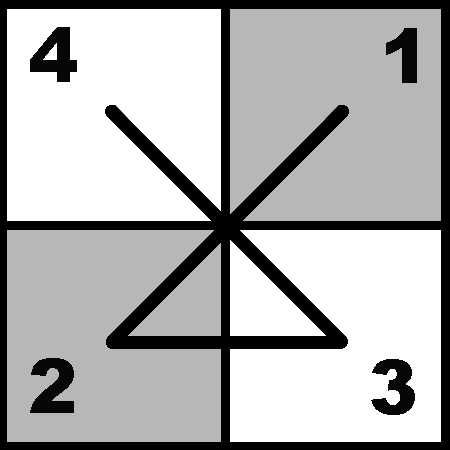
- Doing
- Relationship Story Signpost 1
Chance agrees to go to the Rand home and allow Dr. Allenby to examine him.
- Obtaining
- Relationship Story Signpost 2
Dr. Allenby asks Chance if he is planning to sue the Rands for damages; Dr. Allenby searches Chance’s room for information after observing his eccentric behavior.
- Learning
- Relationship Story Signpost 3
When Dr. Allenby ascertains the effect Chance has on Ben and Eve, he telephones Thomas Franklin in an attempt to learn more about the man.
- Understanding
- Relationship Story Signpost 4
Upon Ben’s death, a conversation with Chance results in Dr. Allenby understanding the man:
You’ve become quite a close friend of Eve’s, haven’t you, Chance. Yes, yes. I love Eve very much. And you really are a gardener, aren’t you? I am a gardener, well, I’ll go and tell Eve about Ben. I understand, I understand. (Kosinski, 1979)
Plot Progression Visualizations
Dynamic Act Schematics
OS:  MC:
MC:  IC:
IC:  RS:
RS: 




